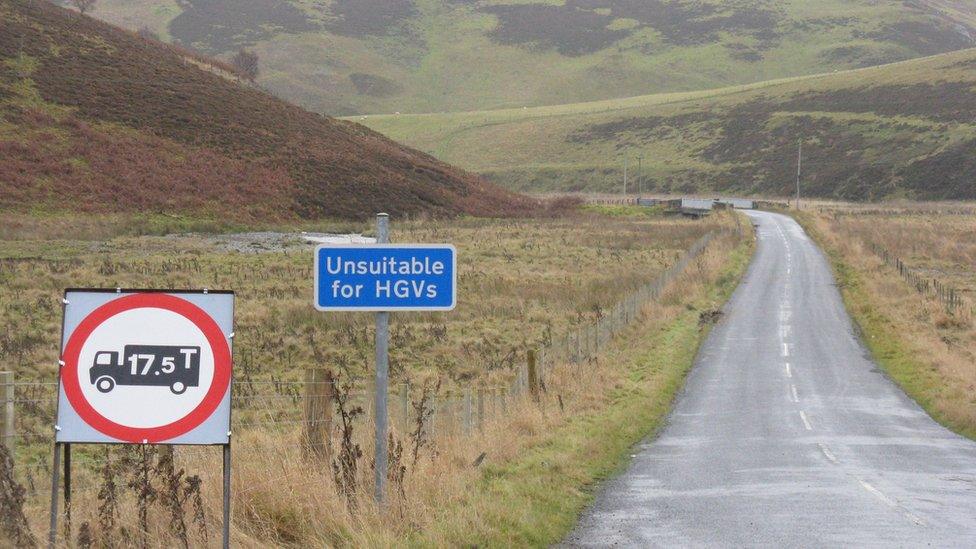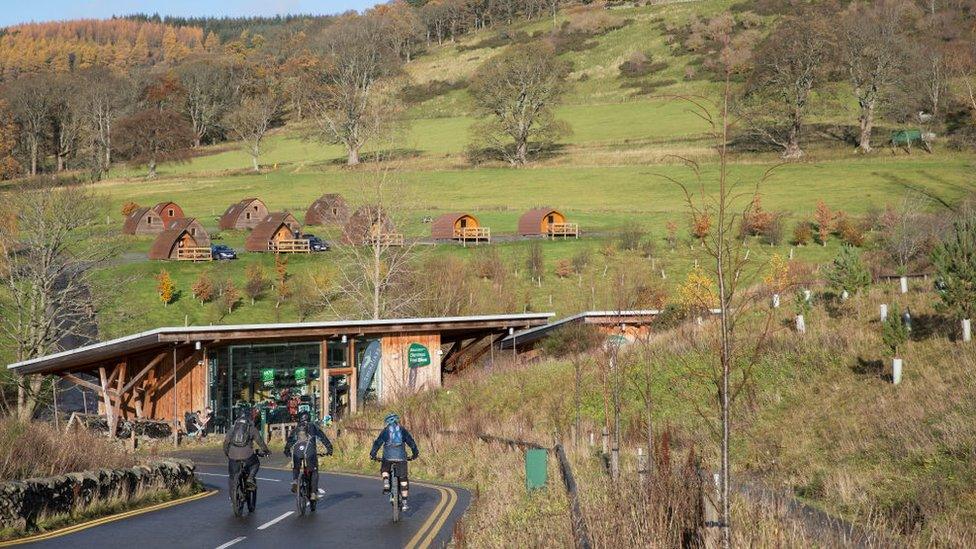Potholes risk deflating Borders cycling tourism
- Published

The condition of the B709 was flagged up as being damaging to cycling tourism in the Borders
The state of the roads in the Scottish Borders could damage the region's cycling tourism credentials, it has been claimed.
Galashiels and district councillor Harry Scott said one official cycle route was in "serious disrepair".
He said the B709 from Heriot to Innerleithen was hazardous not only for cars but particularly for cyclists.
However, he was told the route was inspected every two months in line with Scottish Borders Council's policy.

The Scottish Borders is a popular destination for cycling
Mr Scott flagged up the B709 - one of Britain's longest B roads - as being at the "heart of Borders cycling" in the Innerleithen and Peebles areas.
He said he was not looking for a "quick fix" in the current financial climate but simply that the road was not forgotten.
Mr Scott told a full council meeting: "The B709 Heriot to Innerleithen road is listed as an official Borders cycle route with the aim of attracting touring cyclists to enjoy the scenery and spend money in the Borders.
"Several sections of the road, particularly towards Innerleithen, are presently in a state of serious disrepair, and hazardous not only for cars, but particularly for cyclists.
"May I ask that at the least, the most hazardous sections of the B709 be considered for inclusion as a matter of priority in the roads department's scheme of works and overlays for the year 2019/20."
'Reactive maintenance'
In response, Gordon Edgar, the council's executive member for roads and infrastructure, told the chamber the route was inspected every two months.
"Any defects noted during these inspections are recorded and instructions are issued to carry out reactive maintenance as required within the timescale guidelines," he said.
"Some sections of the B709 road are listed as 'being considered for possible inclusion' in future surface treatment programmes," he added.
He said that the overall condition of the network meant they could not permanently treat all identified sections and had to apply a "prioritisation process" to deliver an annual programme within budget.
Story by local democracy reporter Joseph Anderson
- Published2 June 2016
